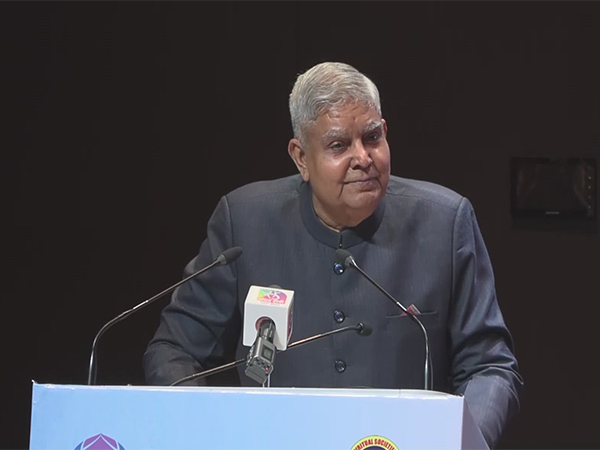India, China relationship is at crossroads, Beijing departed from 1988 consensus last year: Jaishankar
May 20, 2021

New Delhi [India], May 20 : External Affairs Minister S Jaishankar said on Thursday that India's relationship with China is at crossroads following border tensions and its direction depends on whether the Chinese side will adhere to the consensus and whether it would follow through on bilateral agreements reached between the two countries.
Delivering the keynote interview at the FT-Indian Express webinar, Jaishankar referred to the tensions along Line of Actual Control in Ladakh due to actions of Chinese army last year and said if there is disturbance to peace and tranquility and continuous friction on the border, it has impact on the bilateral relationship.
"What we saw last year was China departing from the 1988 consensus... If you disturb the peace and tranquility, if there is intimidation, if there is continuous friction in the border, then obviously they are going to turn around the relationship," he said.
"I think the relationship is at a crossroads and which direction we go depends on whether the Chinese side will adhere to the consensus, whether it would follow through on agreements which we worked on for so many decades because what has been very clear in the last year that border tensions cannot continue with cooperation," he added.
The minister referred to agreements including that on the maintenance of peace and tranquility along the Line of Actual Control in the India-China border areas.
India and China have disengaged from the Pangong Tso lake area in Ladakh following several rounds of diplomatic and military talks. The two sides have been discussing disengagement at the three other friction points of Gogra Heights, Hot Springs, and Depsang plains.
Answering a question on the geopolitical situation in the 21st century in the context of relations between the US and China, the minister said that this was not 'cold war 2.0' as there isn't that kind of sharp military confrontation as in 'cold war 1.0'.
He referred to the situation as a "paradox of sharpening politics", where values, systems, beliefs and freedoms exist on the interdependence between the countries.

















